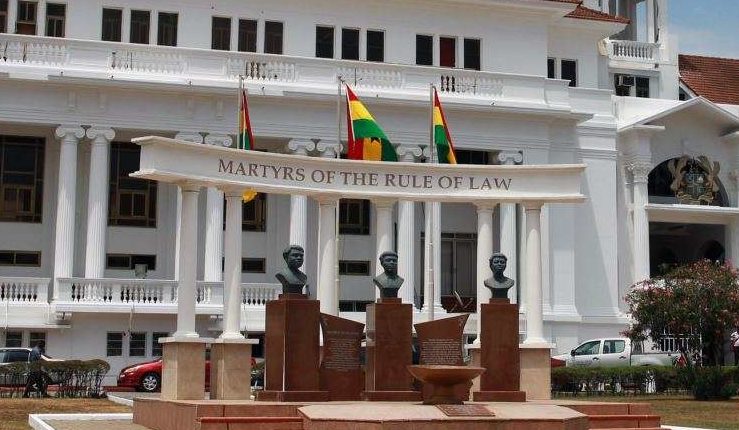The Supreme Court has dismissed a review application challenging the right of a deputy Speaker to vote and be counted as part of the quorum in Parliament.
In a unanimous decision on Tuesday, 26 April 2022, the apex court dismissed the application filed by private legal practitioner Justice Abdulai.
Justice Abdulai wanted the apex court to set aside its own judgement delivered on March 9, reaffirming that deputy speakers could still vote and partake in the decision-making process.
Mr Abdulai insisted that the earlier judgement was a grave miscarriage of justice.
But the deputy Attorney General Diana Asonaba disagreed.
“The long reference to previous constitutions does not meet the criteria for a review application. The plaintiff has failed to show how a miscarriage of justice has been occasioned.
“The plaintiff also failed to show any new matter that should have been considered. The present application is unmeritorious and a clear abuse of the court process,” she said.
After listening to the parties, the court presided over by Justice Jones Dotse dismissed the application, adding that it failed to meet the threshold required for a review case to succeed.
“The application is accordingly dismissed,” Justice Dotse concluded.
The first verdict had Justices Jones Dotse (Presiding), Nene Amegather, Prof Ashie Kotey, Mariama Owusu, Lovelace Johnson, Clemence Honyenuga and Emmanuel Yonny Kulendi.
The two new additions to the review panel were Gertrude Torkornoo and Professor Mensah Bonsu.
Supreme Court earlier decision
In a 29-page document, the apex court noted that Article 97 (1) of the 1992 constitution states that a Speaker of Parliament cannot be an MP, but Deputy Speakers were elected as legislators.
The court held that by virtue of being MPs, deputy speakers still have the right to vote when deciding on a critical issue. To prevent them from voting would amount to disenfranchising their constituents in Parliament.
“To cause a member to forfeit their vote in Parliament merely on account of having to preside over the business of the House in the Speaker’s absence would unfairly disenfranchise not only the presiding member but also their constituents. Such an interpretation would likely give rise to certain perverse outcomes.
“For example, it could lead to opportunistic absences by a Speaker or one of the other Deputy Speakers, as an absence would mean a vote loss by the presiding member and their party,” the court held.
According to the seven-member panel that presided over the case, the constitution clearly defines a person elected as a Speaker and a Deputy Speaker and their functions.
It pointed out that Article 104 (2) specifically mentioned that “The Speaker” be prevented from casting a vote and not other persons, such as deputy speakers presiding over proceedings of Parliament.
“Significantly, the voting disqualification in Article 104(2) is specific to the Speaker and does not generally apply to the person presiding.
“The Speaker is disqualified from voting not because he or she presides over sittings of Parliament, but because the Speaker is not a Member of Parliament, voting being a right only for Members of Parliament,” the court held.
It was also the considered view of the court that the only instance whereby a Deputy Speaker or any MP was barred from voting on the floor of Parliament was under Article 104(5), which is when the MP had a conflict of interest in a specific contract under consideration.
“Presiding at a sitting of Parliament is not intended by the framers of our Constitution to be a disqualifying conflict of interest, and therefore, a presiding Deputy Speaker does not forfeit his or her right to vote merely by virtue of presiding in the absence of the Speaker,” the court added.



